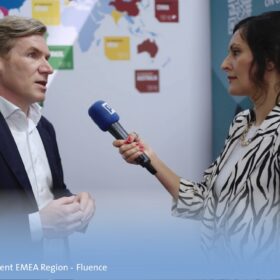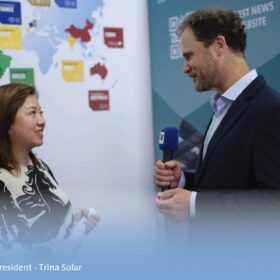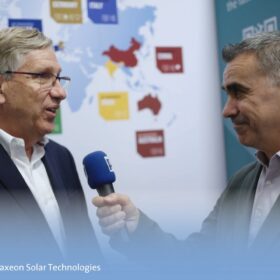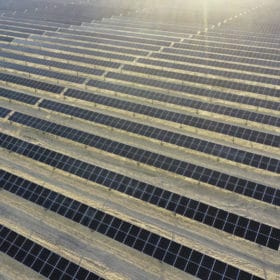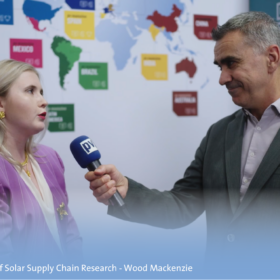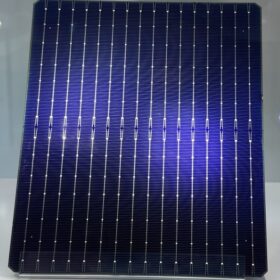Pexapark says European developers signed 23 PPAs for 944 MW in June
Swiss consulting firm Pexapark says the total capacity of signed power purchase agreements (PPAs) in Europe dropped 36% month on month in June. For the first time, no utility PPAs were recorded, as all deals were corporate.
‘From the next two years on we start to see battery supply in Europe’
At Intersolar Europe 2024, ESS News spoke with spoke with Paul McCusker, President EMEA Region at Fluence, about the company’s regionalization strategy and its ambition to bring a locally made products to its customers in Europe. McCusker also spoke about EMEA-region specific technology preferences and requirements, particularly regarding noise levels and safety. Additionally, he presented his views on battery price movements and key challenges to market growth.
Trina expects consolidation, diversification of technology in challenging market conditions
At Intersolar Europe 2024, pv magazine spoke with Helena Li, executive president at Trina Solar, about fierce competition and consolidation in the PV industry. She believes the strongest manufacturers will become stronger in the months to come and says only product diversification and innovation can help companies move ahead in the current overcapacity scenario.
‘Nobody is making money right now’
As part of our Intersolar 2024 interview series, pv magazine spoke with Bill Mulligan, CEO of Singapore-based IBC solar module maker Maxeon. He states the IBC technology will remain competitive despite overcapacity and dropping modules prices and says Maxeon may enforce intellectual property rights with all existing and new back contact competitors that are allegedly utilizing its technologies.
India records 14.7 GW of new solar in fiscal 2024
India installed about 11.7 GW of utility-scale solar capacity and another 3 GW of rooftop solar capacity in the 12 months ending March 31, 2024.
Oman reveals preferred bidders of 500 MW solar tender
The authorities in Oman have revealed the preferred bidders for a 500 MW solar tender for the Ibri III Solar IPP facility.
‘Good time to be battery storage developer’
At Intersolar Europe 2024, ESS News spoke with George Hilton, research and analysis manager at S&P Global, about the state of play in the battery energy storage supply chain and falling prices. According to Hilton, the overcapacity at every level of the supply chain has led to prices that are no longer sustainable for many market players. Meanwhile, technological innovation has led to an unprecedented variety of battery storage technologies on offer, and for a great number of markets the right time to jump in is now.
‘We expect solar panel prices to stabilize in the second half of the year’
At Intersolar Europe 2024, pv magazine spoke with Edurne Zoco, executive director, Clean Energy Technology at S&P Global Commodity Insights, about module price trends, increasing solar demand and PV manufacturing outside China. She claims panel prices may stabilize in the second half of this year or in early 2025 and says top seven Chinese manufacturers may even continue with capacity expansion plans. She also believes that, without further substantial incentives, Europe will not be able to recreate a domestic PV supply chain.
‘Module prices surprisingly keep going down’
As part of our Intersolar 2024 interview series, pv magazine spoke with Yana Hryshko, head of Solar Supply Chain Research for Wood Mackenzie, about overcapacity, declining panel prices and expected PV demand for the next years. She revealed that Chinese module procurement schemes are currently seeing unprecedented, “ridiculously” low bids, but she also noted that the $0.08/W threshold may now be difficult to exceed. Hryshko also expects many manufacturers to backpedal on previously announced capacity expansion plans and renegotiate module supply contracts.
Chinese solar cell maker to build 10 GW factory in Oman
Chinese solar cell maker Hainan Drinda New Energy Technology plans to build a 10 GW factory in Oman to produce tunnel oxide passivated contact (TOPCon) solar cells.

